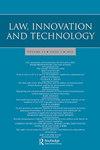用人工智能解决道德困境:它如何帮助我们应对Covid-19危机的社会影响,并增强人类应对元困境的责任
Q1 Social Sciences
引用次数: 0
摘要
摘要在新冠肺炎危机背景下,当与适当水平的人类判断相结合时,机器学习应用是支持决策的关键资源,从而对道德问题做出更高效、更明智的反应。本文关注四个社会层面(生物伦理、政治、心理和经济),新冠肺炎危机背景下的决策由此产生了重大的伦理影响。一方面,我反对从纯粹的算法方法来解决这些问题的可能性,详细阐述了自动化系统处理道德问题的两种限制。这让我讨论了不同的道德状况如何要求不同的绩效指标来衡量“上下文可解释性和绩效问题”,并阐述了一个黄金原则:“合法性胜过准确性”。另一方面,我介绍了机器学习应用的实际例子,这些应用在更好地解决这些问题时增强而不是削弱了人类的道德能动性。我还提出了一个“道德边界”框架,以确保算法辅助决策者对关键决策的责任。人工智能通过干预道德困境的可能性条件来“解决”道德困境的独特潜力促使我讨论一种新型的道德情境:人工智能产生的元困境。本文章由计算机程序翻译,如有差异,请以英文原文为准。
Solving moral dilemmas with AI: how it helps us address the social implications of the Covid-19 crisis and enhance human responsibility to tackle meta-dilemmas
ABSTRACT When combined with an appropriate level of human judgement, machine learning applications were crucial resources insupporting decision-making in the context of the Covid-19 crisis, resulting in more efficient and better-informed responses to ethicalissues. This paper focusses on four social dimensions (bioethical, political, psychological, and economic) from which the decisionstaken in the context of the Covid-19 crisis derived major ethical implications. On the one hand, I argue against the possibility ofaddressing these issues from a purely algorithmic approach, elaborating on two types of limitations for automated systems toaddress ethical issues. This leads me to discuss how different ethical situations call for different performance metrics with regards tothe ‘contextual explicability and performance issue’, as well as to enunciate a gold principle: ‘legitimacy trumps accuracy’. On the otherhand, I present practical examples of machine learning applications which enhance, instead of dilute, human moral agency in betteraddressing these issues. I also suggest a ‘moral perimeter’ framework to ensure the responsibility of algorithms-assisted decisionmakersfor critical decisions. The unique potential of AI to ‘solve’ moral dilemmas by intervening on their conditions of possibility thenprompts me to discuss a new type of moral situation: AI-generated meta-dilemmas.
求助全文
通过发布文献求助,成功后即可免费获取论文全文。
去求助
来源期刊

Law, Innovation and Technology
Social Sciences-Law
CiteScore
4.50
自引率
0.00%
发文量
18
期刊介绍:
Stem cell research, cloning, GMOs ... How do regulations affect such emerging technologies? What impact do new technologies have on law? And can we rely on technology itself as a regulatory tool? The meeting of law and technology is rapidly becoming an increasingly significant (and controversial) topic. Law, Innovation and Technology is, however, the only journal to engage fully with it, setting an innovative and distinctive agenda for lawyers, ethicists and policy makers. Spanning ICTs, biotechnologies, nanotechnologies, neurotechnologies, robotics and AI, it offers a unique forum for the highest level of reflection on this essential area.
 求助内容:
求助内容: 应助结果提醒方式:
应助结果提醒方式:


